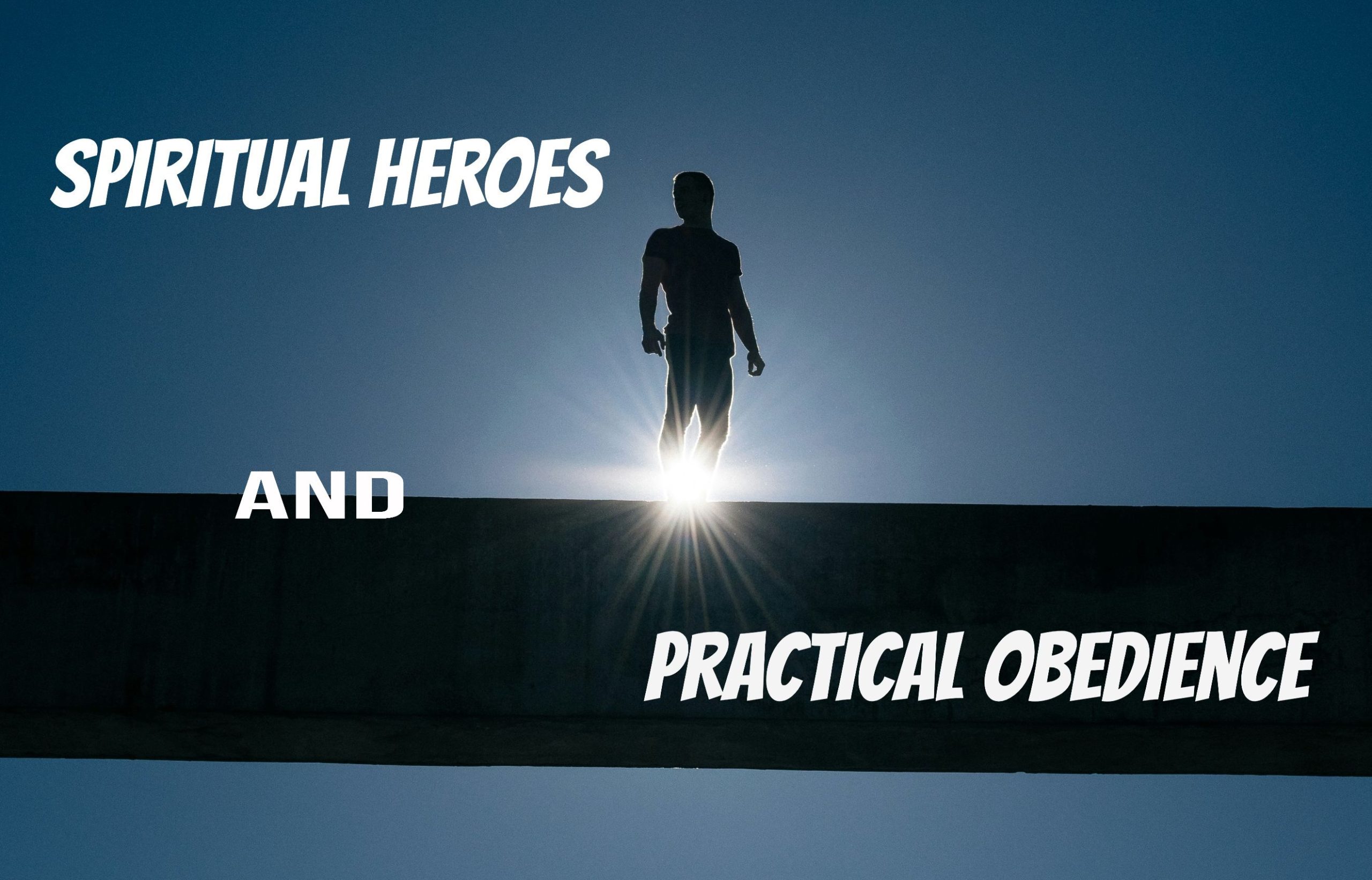Spiritual Heroes and Practical Obedience
Have you heard the story about a man who escapes his boring life by fantasizing about being a hero? If you’re familiar with books and movies such as The Secret Life of Walter Mitty or Don Quixote, you know what I mean. People who live in a fantasy world to escape reality.
Christians often do the same thing. The difference is that our story involves a day-to-day struggle with spiritual disciplines and spiritual growth. We go with the flow day after day, resigned to our weaknesses and failures, all the while imagining that, in a crisis, we’ll suddenly rise to the occasion as heroes of faith.
But life doesn’t work that way.
Spiritual struggles are rarely first won at the level of a huge battle. The foundation for battle-level victories is laid in habits learned during day-to-day skirmishes. In the little things that seem unimportant, yet wear us down spiritually and emotionally.
Wise King Solomon understood this when he wrote, “Catch for us the foxes, the little foxes that ruin the vineyards” (Song of Solomon 2:15 NIV). It’s the little things that ruin relationships, and it’s the little things that eat away at our spiritual growth, weakening us in skirmishes and leaving us unprepared for the crisis. With each skirmish defeat, our spiritual enemy builds his strongholds in your life and mine—otherwise known as deeply ingrained habits. And habits are cultivated, not in a crisis, but in every-day living.
Author, speaker, and missionary Elizabeth Elliot once said: “Spiritual strongholds begin with a thought. One thought becomes a consideration. A consideration develops into an attitude, which leads then to action. Action repeated becomes a habit, and a habit establishes a ‘power base for the enemy,’ that is, a stronghold.”
We see a great biblical example of this in the life of Daniel in Daniel 6. During his Babylonian exile, Daniel developed a daily habit of praying three times a day to Yahweh, the one, true, living God. His enemies knew this and persuaded the king to pass a statute requiring everyone to limit their prayers to the king alone. Despite this crisis, Daniel continued his daily practice of praying to Yahweh. Daniel did not have to weigh the pros and cons of praying to someone other than the king. His daily habit had already prepared him for the crisis.
Practical Obedience
So how does this help us today? Oswald Chambers provided a succinct solution: “Do some practical obeying.”* Take a good look at what we do and why we do it. The apostle Paul said it this way, “I have the right to do anything,” you say—but not everything is beneficial. “I have the right to do anything”—but I will not be mastered by anything” (1 Corinthians 6:12). To paraphrase, just because something isn’t explicitly bad does not make it good.
Instead of asking, “What’s so wrong with this?” let’s ask, “Does this strengthen my relationship with God?” Consider the practical advice in these Bible verses:
- “Do not conform to the pattern of this world, but be transformed by the renewing of your mind” (Romans 12:2 NIV).
- “Whatever one sows, that will he also reap” (Galatians 6:7 NIV).
- “Put on the new self, which is being renewed in knowledge in the image of its Creator” (Colossians 3:10 NIV).
- “Solid [spiritual] food is for the mature, who by constant use have trained themselves to distinguish good from evil” (Hebrews 5:14 NIV).
- “Do not merely listen to the word . . . Do what it says” (James 1:22 NIV).
Don’t wait for the crisis to be a spiritual hero. Determine to live transformed in the daily skirmishes of life as you listen to the prompting of the Holy Spirit. When you do, you’ll experience victory in the larger battles, too!
How does practical obedience fit into your preparation for spiritual battle?
*Oswald Chambers, Daily Thoughts for Disciples, May 2






0 Comments